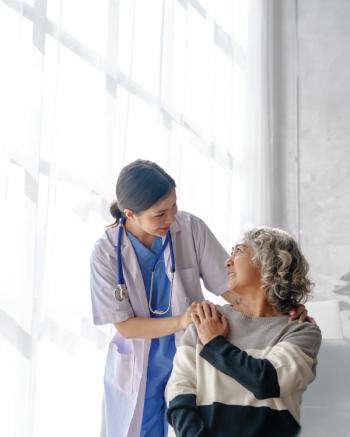
Jun J. Mao, MD, MSCE, on the Need for Non-Pharmacological Pain Management in Cancer Survivors
As the national opioid crisis has created new challenges in pain management, cancer survivors are in need of non-pharmacological options.
As the national opioid crisis has created new challenges in pain management, cancer survivors are in need of non-pharmacological options for when they are in treatment and in the long term, according to Jun J. Mao, MD, MSCE.
At the 2020 ASCO Virtual Program, Mao – who is chief of Integrative Medicine Service at Memorial Sloan Kettering Cancer Center – presented a study designed to evaluate the comparative effectiveness of electro-acupuncture and auricular acupuncture versus usual care in managing pain in cancer survivors.
In an interview with CancerNetwork, Mao explained the need for non-pharmacological options, what current usual care consists of, and how these types of acupuncture work.
Transcription:
It is well known that many cancer patients experience significant pain and are undertreated during their treatment and survivorship. In the last 5 years, because of the opioid epidemic in the Unites States, there have been legal challenges from prescribing opioids as well as physicians recognizing it’s the right approach for many cancer survivors. Because of those reasons, use of pain medications to help manage (symptoms), has become much more difficult. Many cancer survivors also have kidney or liver issues from their treatment, as well as other health-related issues, so taking large amounts of NSAIDs for the long term may not be ideal. There is a need for non-pharmacological treatments to help cancer survivors manage pain.
Usual care often involves use of pain medications, whether that is Tylenol or non-steroidal types of medications, such as Motrin, Aleve, and muscle relaxers. Certainly for people who have more severe types of pain, this includes opioids. Then, other types of therapies such as physical therapy are also a standard of care for managing pain.
There is some body of literature to suggest that with acupuncture stimulation, it can influence the neurotransmitter released in the brain, such as endogenous opioids like dopamine. There are also certain neuro circuits in our brain structure that are influenced when you put needles in the body. Specifically for electro-acupuncture at the acupuncture points have been associated with the release of endogenous opioids. Regular acupuncture works by putting needles in the ear that can cause some release of endogenous opioids or modulation that relieves pain. The basic science evidence of ear acupuncture is not good as for auricular acupuncture.
Newsletter
Stay up to date on recent advances in the multidisciplinary approach to cancer.




































